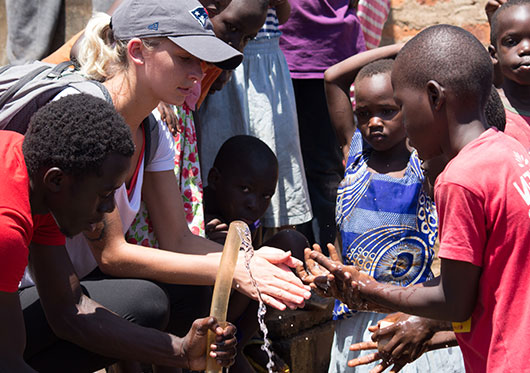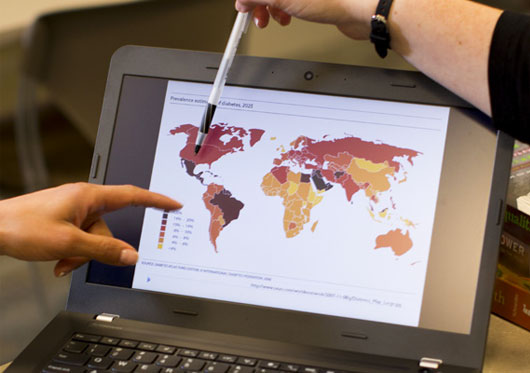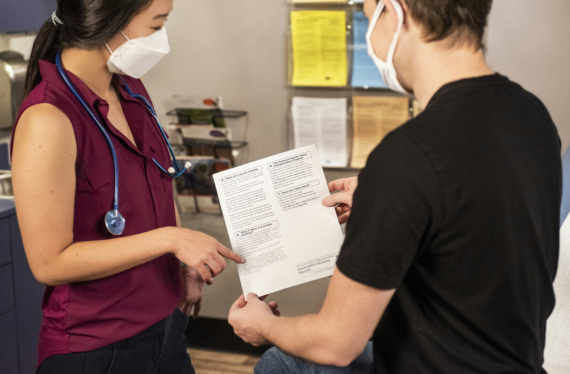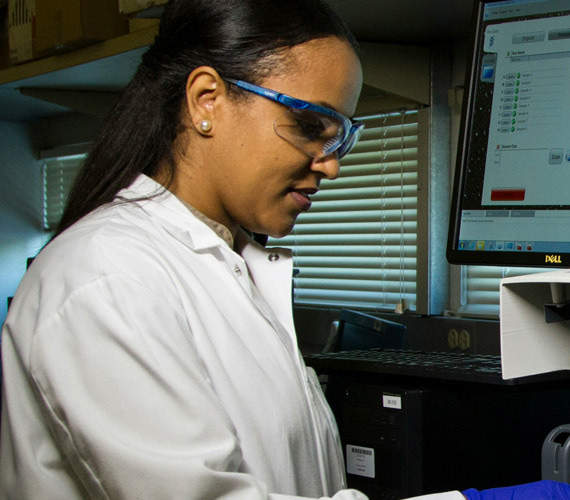If you’re passionate about the health of the general population, then you might want to consider a career in public health. Roles like an epidemiologist, community health worker, and biostatistician all make a meaningful impact in the community with the help of advanced education in public health.
This coursework can help you better understand public health trends and how to combat common challenges in the field.
To ensure you choose the right program for your career goals, here’s an overview of what to expect from a quality public health curriculum.
Choosing the Right Public Health Degree Path
As a healthcare professional hoping to make an impact in the community, you’re often faced with the choice between clinical and non-clinical career paths. Keep this in mind as you explore your degree options since it often dictates what program best fits your career goals.
For example, pursuing a Bachelor of Arts (BA) in Public Health typically leads to a non-clinical role. This is because its curriculum focuses less on science and more on the social aspects of public health, such as policy, education, and community health initiatives.
On the other hand, individuals on a clinical path, which involves direct patient care and more technical public health work, typically pursue a Master of Public Health (MPH). The MPH program offers in-depth studies in epidemiology, biostatistics, and environmental health, which prepares graduates for clinical and research-oriented roles.
As a result, it’s important to choose an educational path that aligns with your career aspirations in the diverse field of public health.
Online vs. In-Person Public Health Courses
When researching public health programs, one of the most common concerns is the difference between online and in-person coursework.
Luckily, in public health education, the difference between in-person and online curriculums is minimal. Both formats strive to deliver comprehensive education in public health principles, covering the same core subjects.
However, there are a few advantages to each modality that are worth noting. For example, while online courses offer interactive, engaging content through live discussions, group projects, and practical exercises; in-person programs are more effective at building valuable professional relationships that could lead to future roles in the field.
Whether you choose an online or in-person format, you can expect to receive a robust public health curriculum that prepares you for your future career.
Top Public Health Courses
While each curriculum will vary depending on the program’s focus and flexibility, most public health curricula typically cover every area of public health to some degree.
The undergraduate Public Health program at Regis College teaches students how to promote health education, develop programs and policies, identify and monitor diseases, and conduct research. Some of these courses include:
- An Introduction to Public Health
- Introduction to Epidemiology
- Global Health
- Environmental Health
- Public Health Policy
- Social Determinants of Health
- Leadership and Management
The MPH program is slightly different, in that it includes foundational courses, specialization courses, a capstone, and a field practicum. Students learn how to advocate for policy change, improved health outcomes, social change, and community solutions to address organizational and community challenges.
Nearly all public health curricula try to touch on the ten essential public health services as well—a framework that outlines how public health aims to protect and promote health in the population.
The ten essential services are categorized under three big umbrellas:
- Assessment
- Policy Development
- Assurance
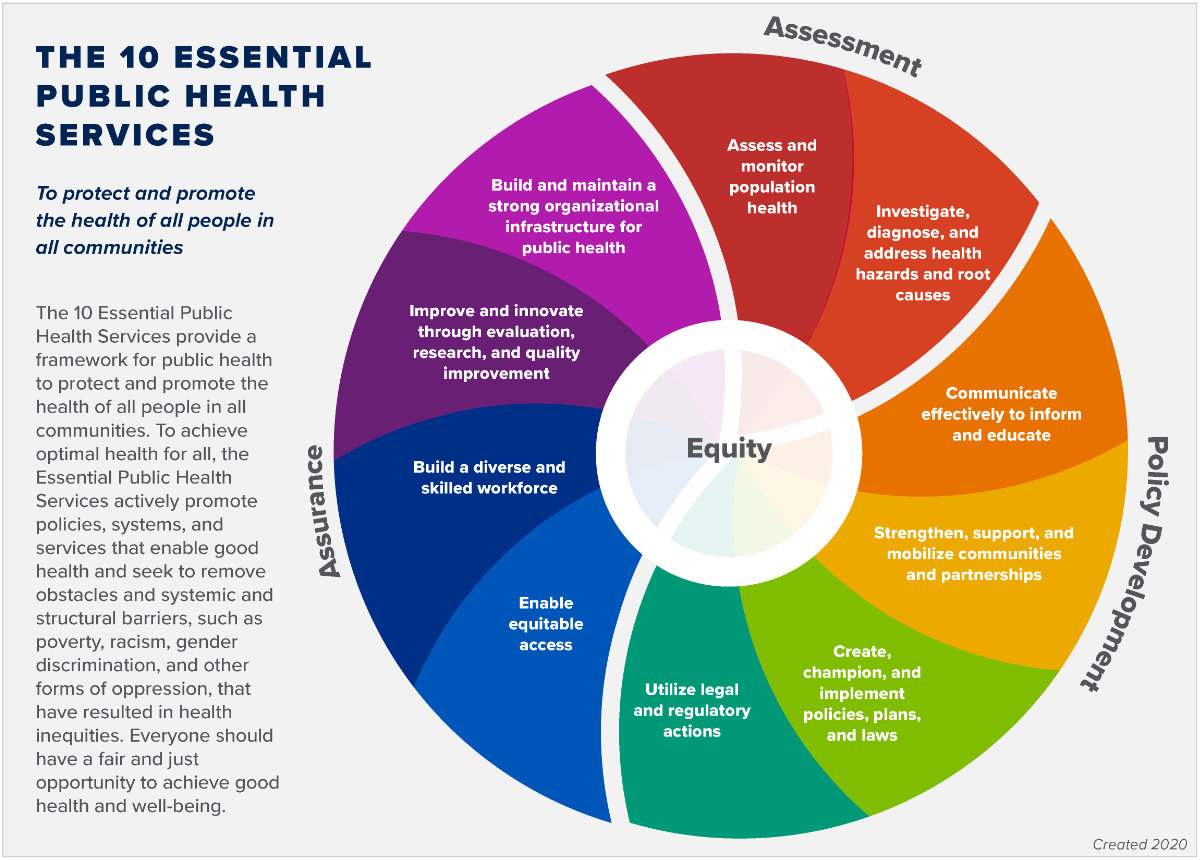
Another important factor that can impact your public health curriculum is your current educational background.
It’s common for health-related degrees to have a number of prerequisites to even apply to their program—public health is no exception. Many times, these course requirements revolve around the basics of related math and sciences, but these can vary depending on the program you choose. Although each program is different, most public health curricula will include prerequisites in biology, physiology, anatomy, statistics, and other similar courses.
Specialized Public Health Courses
While foundational coursework is essential to your success in public health, specialization can make a huge impact on your future career.
For example, at Regis College, MPH students must choose between two concentrations:
- Epidemiology: Studying factors that contribute to the spread of diseases and work to find data-based solutions or impediments to their transmission.
- Health Policy and Management: Learning how to influence public health policies, improve organizational performance, and communicate solutions or improvements.
These concentrations can help you determine what specialized coursework is right for you.
In the case of epidemiology, students will focus on big picture solutions to public health through coursework like biostatistics and in-depth classes on chronic and infectious diseases. Students who choose the health policy and management track will focus on policy solutions that can enact long-term change.
Specialized coursework in public health is essential to developing important public health health skills needed to address common health challenges. It enables focused expertise in areas like epidemiology or environmental health, making you more competitive in the job market.
Through an interdisciplinary approach, these courses offer a comprehensive understanding of health issues, enhance adaptability to emerging public health trends, and offer research opportunities to contribute to the field's advancement.
Ultimately, specialized training is crucial for developing the expertise required for effective public health interventions and career specialization.
Is Public Health a Hard Degree?
In addition to finding a suitable modality, aspiring public health professionals may wonder about the difficulty of pursuing a public health degree. Public health is diverse and encompasses a wide range of disciplines. Pursuing a degree in this field may present some challenges due to the complexity of the subject matter and the variety of topics covered. However, it's essential to recognize that the difficulty level is subjective and varies based on individual strengths, interests, and prior knowledge.
Public health programs require individuals with strong critical thinking and problem-solving skills and a solid foundation in scientific principles. It’s also constantly evolving, bringing new challenges and opportunities. With dedication, passion, and a commitment to learning, students can successfully navigate the complexities of a public health degree and make significant contributions to improving population health and well-being.
If you possess an unwavering passion for the well-being of communities, you will find immense satisfaction in pursuing a field that empowers you to make a difference in the lives of many.
Real-World Application in a Public Health Curriculum
Public health is all about family, community, and the general population. So make sure you find a program that integrates current health events with the various health-related issues your community faces to ensure you receive a well-rounded health education.
Regis College courses focus on integrating the community into the curriculum to ensure students have a better understanding of how these concepts apply in real-world scenarios. Look into public health programs, like Regis, to see how this type of curriculum can set you up for success after graduation.
Next Steps to Becoming a Public Health Professional
Public health can be an exciting field of work with countless paths for you to take, but it’s important to find a program that embodies community values.
For example, the Regis College mission, “Caring for the dear neighbor,” encapsulates the social justice aspect of public health and often entices students who want their education to mimic what they hope to practice in the field.
While there are different kinds of public health curricula and programs, it’s important to find the best fit for you and your career aspirations.


